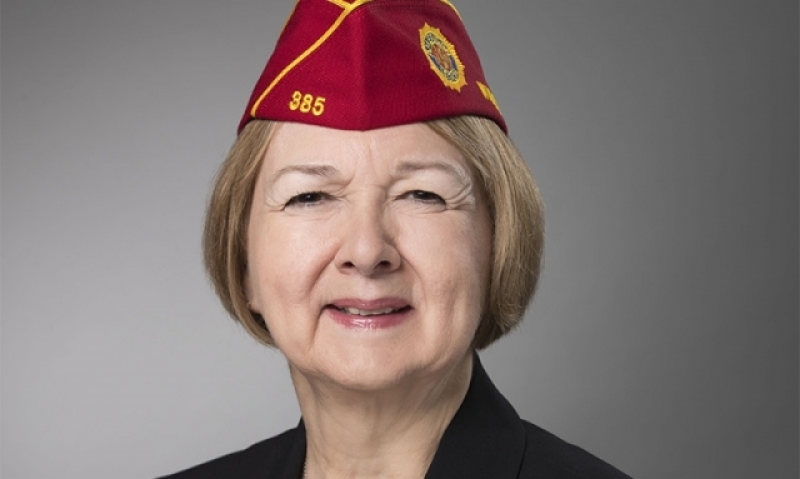
June 27 is National PTSD Awareness Day.
American Legion National Commander Denise H. Rohan released the following message for National PTSD Awareness Day, June 27.
"During the First World War, military psychiatrists noted that 'shell shocked' soldiers treated with the support of their comrades near the frontlines had a higher likelihood of recovery. In contrast, the soldiers who were evacuated from their units and placed in hospitals were more likely to develop chronic symptoms and were eventually discharged from the military. Psychiatrists determined that a soldier’s sense of belonging to a group or society contributed to a higher level of psychological well-being.
"Today, shell shock is called post-traumatic stress disorder (PTSD), and researchers estimate that at least 20 percent of Iraq and Afghanistan veterans have been diagnosed with PTSD. June 27 is National PTSD Awareness Day, and I would like to provide a different perspective on psychological injury. The prevalence and severity of PTSD cannot be explained by only looking at the cause or triggering events alone. PTSD manifests in many different ways and veterans’ experiences are often dependent on the level of social support they receive.
"When servicemembers return home, it is our responsibility to ensure that they receive the support that they need. A close, cohesive, empathetic and understanding society can enhance veterans’ recoveries and can help to reduce the symptoms of PTSD. Recovery from PTSD is possible and a key factor is the development of intimate personal connections and meaningful trusting relationships between veterans and others in our society.
"Remember, we are a Legion Family and these are our brothers and sisters. I ask each of you to reach out and check on your fellow veterans. Connect with them and help them feel supported. It can make a big difference in their lives. Grab coffee with an old friend, call someone you served with to catch up, host a unit reunion barbeque, or go for a hike with a fellow post member. The kind of society that our veterans return to can influence how quickly they recover from the psychological injuries of war.
"Veterans who are in crisis or have had thoughts of suicide should call the Veterans Crisis Line at (800) 273-8255, chat online at www.veteranscrisisline.net/chat, or text to 838255. If you know someone at risk, help them get help. You can make a difference."
For more resources on PTSD, visit here.
- Commander

